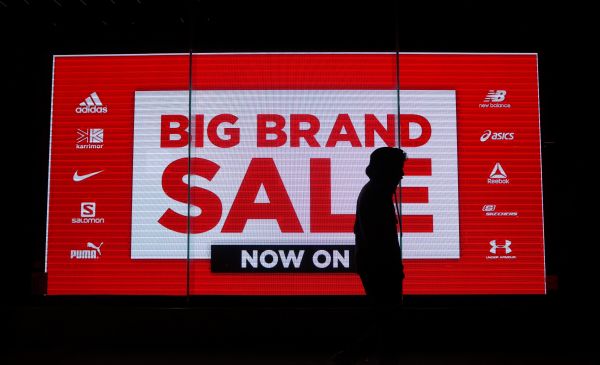Branding Strategy Insider helps marketing oriented leaders and professionals build strong brands. To that end, we regularly answer questions from marketers everywhere. Today we hear from Clint, a marketer in Nashville, Tennessee who asks…
I work on brand for a global Christian resources company with a retail operation. I have been trying to think of an example of a brand that is associated exclusively with religion. I just imagined myself walking through a church trying to identify something with a brand: Pews, pulpits, bibles, hymnals, steeples… nothing I can think of has a brand identity. Why do you think this is? Do we see branding as taboo when we associate it within the context of religion?
Clinton, thanks for your question. I think of everything in terms of brands. Cities are brands and cultural institutions are brands. So are schools, people and yes, even religions.
Think about how different Unitarian Universalists (UUs) seem to be from people who belong to an Assemblies of God church. Or how Christian Scientists are different from Southern Baptists. Or how The Church of Jesus Christ of Latter-day Saints (LDS) is different from Vineyard churches. Consider Hindus and Buddhists and Muslims and Jews. And even within the Muslim faith, consider the different branches of Islam – Sunni, Shi’a, Sufi, Ahmaddiya, etc. Or within Judaism, the differences between Orthodox, Conservative and Reform. And there are Missouri Synod Lutherans (of a German heritage, fairly conservative), Evangelical Lutheran Church in America (Scandinavian, more liberal) and Wisconsin Evangelical Lutherans (very conservative). Or how LDS is different from RLDS or FLDS.
Consider the differences in beliefs and world views and traditions and forms of worship. Consider the different conceptions of God and of man’s place in the universe and even of the nature of reality. Consider the differences in importance of silence versus praising versus scholarly study versus doing good works in different religions. Consider the different types of people that different religions attract.
I believe that religion is highly branded. It is just not the way that most people think about religion.
Have a question related to brand or growth? Just Ask The Blake Project
The Blake Project Can Help: The Brand Positioning Workshop
Branding Strategy Insider is a service of The Blake Project: A strategic brand consultancy specializing in Brand Research, Brand Strategy, Brand Licensing and Brand Education





5 comments
Jason Lim
June 30, 2011 at 12:05 am
I think in this case it’s knowing where to look that matters. While the items Clint mentioned aren’t branded in the sense that there are no brands specifically for pews or hymnals, there are very real differences in pews and hymnals between religions.
I think the reason why Clint doesn’t see the branding is because he’s looking of overt branding, or branding in the way we usually understand it. Religions themselves are brands, even if they don’t want to admit it. In fact, you can say some religions are brands with the most loyal followers; it’s just that they don’t use the same language.
Many of the relationships between brands and their loyalists mirror those found between religions and their believers. Many of the problems some religions face today are actually branding problems, too.
This is a very interesting topic, but (understandably) it’s very touchy and hasn’t been explored in much detail.
GSP
July 5, 2011 at 11:40 pm
For specific products, there’s the Veggie Tales series, Left Behind books, etc. A whole parallel economy here in the US. There’s also plenty of local businesses that are “Christian owned/oriented”.
As other posters said, religions themselves are strongly branded in terms of proving a promise, target demographic and identity that a consumer/follower can co-opt. Perhaps the oldest surviving brands, in fact.
Over here in the US there’s a number of churches using modern branding techniques, especially the ones aimed at younger audiences.
For religious paraphernalia (pews, hymnals, etc) it’d be interesting to know if the lack of brands is due to religious reasons from the churches (not wanting to appear ostentatious), from providers (pursuit of money – ie. growing a large corporation – is discouraged), because the market is too small or just disorganized and thus ripe for a supplier to organize around a brand.
As Jason Lim said, understandably hard for an outsider to research – especially on the Internet, where even seemingly innocent questions about religious matters can bring on a tsunami of herp derp.
Steve Muscato
July 8, 2011 at 3:15 pm
I agree that it is somewhat awkward to think of religions, churches and believers in terms of brands and loyal customers, but there isn’t a difference.
For brands, in basic terms, they are the sum of its parts. It is what people think about a brand that defines it. Brands are all about the experience.
Think coffee. It is the Starbucks experience that separates their coffee from McDonalds or Dunkin Donuts. All three restaurants serve coffee but Starbucks enhances that coffee experience with their atmosphere, service and other unique branding elements. And like a religion, they have their loyal believers who are there because of the overall experience with their brand.
Religions too are about the experience.
As Brad illustrates, there are many different religions. Removing the obvious theological differences between them for this conversation, the basic “product” of religion is similar – one’s belief in a higher power and how a group of similarly minded individuals worship, celebrate and live their lives in accordance to that belief. Religion here is the ‘big idea’ while churches within that religion are really the branded, tangible touchpoints that connect the individual to the religion. Each church within a particular religion has their own collection of branded elements that support the religion and carry the essence of the brand.
For Catholics, it is deep tradition, pews with kneelers and choir music. For contemporary Christians, it is uplifting worship music, comfortable seating and bible study on a jumbo screen. Each religion and supporting churches and places of worship have their own brand that work together.
So are religions brands? Yes. And through experiences and characteristics that are delivered consistently across all the religions touchpoints, their brand can make a loyal and emotional connection to their followers.
GDC
July 13, 2011 at 12:51 pm
As a Lutheran pastor – it seems to me the christian religion has one very strong brand…at least in one aspect: The Cross! one knows exactly what’s going on when the cross – in whatever form – is on a sign, building or bumper.
(And to varying degrees – the fish is a member of the same brand)
Clinton
July 19, 2011 at 10:29 am
GDC – I sort of agree with your Cross reference. Yes, “most” people know what it means… however I would say that the cross became mainstream and lost its original meaning when people started wearing it around their neck. Which is really weird. I wonder when people will start wearing electric chairs?
Love this discussion.
Yes, I completely agree that religions are brands. And with the most loyal followers. Well, in a sense that they will defend their loyalty to it. However, we are seeing a change in that Christians are becoming more open to the idea of multiple ways to God. Does this mean that they are becoming “open to other brands”? Also, we define their loyalty as “identifying themselves with”, not necessarily what they spend their money on. Very few Christians actually tithe 10% of their income. Does this mean then that they “identify” with the brand, but they are not truly “loyal”? I mean, we wouldn’t call a consumer a loyal follower of a brand if they never “purchased” a product, even though they spent “an hour per week”, with the product say, on the internet.
What do ya think?
Comments are closed.